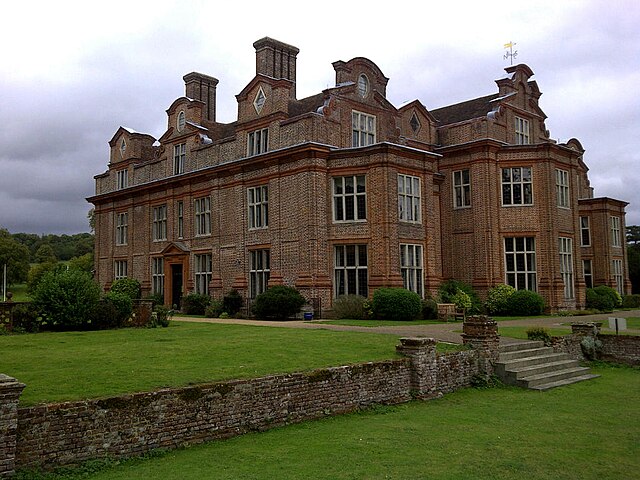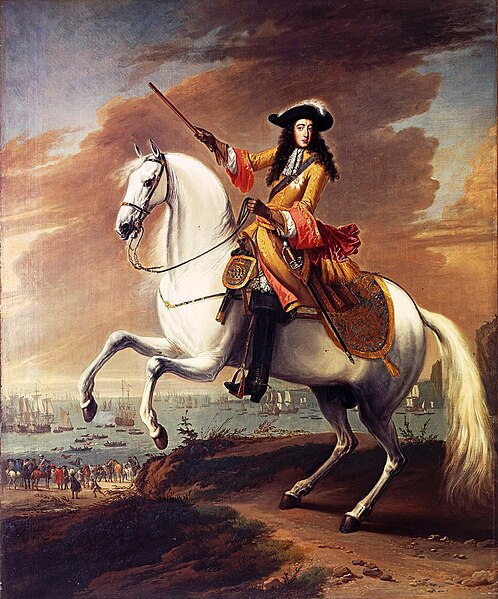John Dixwell, alias James Davids, was an English lawyer, republican politician and regicide. Born in Warwickshire, during the Wars of the Three Kingdoms he held various administrative positions in Kent on behalf of Parliament, and approved the Execution of Charles I in January 1649. Under the Commonwealth, he served as Governor of Dover Castle, and was a member of the English Council of State.
Center Church on the Green, New Haven, Connecticut; its cemetery includes Dixwell's monument
Broome Park, rebuilt at great expense between 1635 and 1638 by Dixwell's guardian, Sir Basil Dixwell
Dover Castle; Dixwell was Governor from 1652 to 1660
City hall, Hanau; a well-known refuge for religious and political dissidents, Dixwell lived in the town during the first years of his exile
The Restoration of the Stuart monarchy in the kingdoms of England, Scotland, and Ireland took place in 1660 when King Charles II returned from exile in continental Europe. The preceding period of the Protectorate and the civil wars came to be known as the Interregnum (1649–1660).
King Charles II in coronation robes by John Michael Wright
The departure of Charles II from Scheveningen (1660)
Thomas Harrison, the first person found guilty of regicide during the Restoration
Equestrian portrait of William III by Jan Wyck, commemorating the start of the Glorious Revolution in 1688








